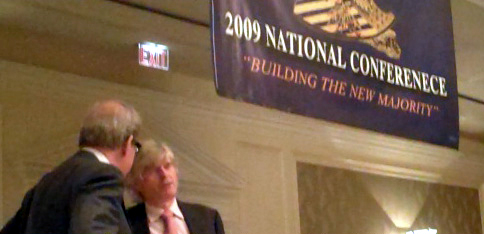"The risk that the taxpayer does not bear a disproportionate burden"
In a recent IMF report on Ireland, point 47 of the "Staff Appraisal" (p. 28), dealing with a proposed "National Asset Management Agency" (aka "Bad Bank"), reads:
47. With regard to NAMA, risk-sharing structures should be considered to address the well-known pricing problem. The pricing of distressed assets is complex and can slow down the transfer of assets from the troubled bank. Risk-sharing can potentially create better incentives for managing the bad assets. And they also guard against the risk that the taxpayer does not bear a disproportionate burden of the costs cleaning up the banks. [emphasis added]
Breffni O'Rourke, who sent in this example of overnegation, comments that "My fear is that they actually mean exactly what they say."
Read the rest of this entry »


 Usarufa is a
Usarufa is a 